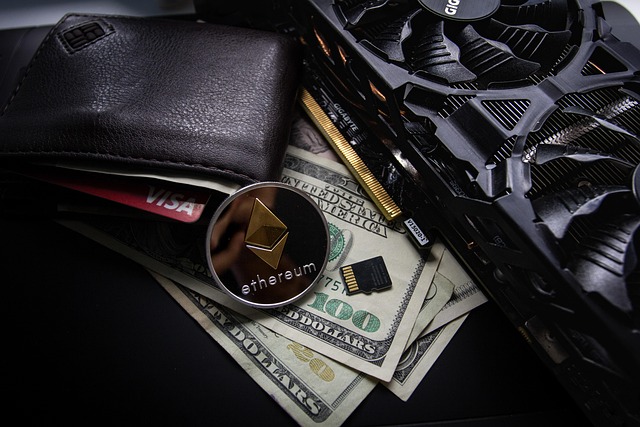Is Bitcoin Mining on Telegram Real in 2025? An In-Depth Analysis
Author: Jameson Richman Expert
Published On: 2025-07-28
Prepared by Jameson Richman and our team of experts with over a decade of experience in cryptocurrency and digital asset analysis. Learn more about us.
As the cryptocurrency ecosystem continues its rapid evolution, new methods and platforms promising lucrative earning opportunities emerge constantly. Telegram, with its massive user base, end-to-end encrypted messaging, and thriving crypto communities, has become a focal point for both legitimate discussions and scams. During my initial exploration of the crypto world, I was inundated with claims that you could mine Bitcoin directly through Telegram bots or groups. Over the years, I have scrutinized these claims, experienced firsthand the prevalence of scams, and gained insights into legitimate, secure ways to earn cryptocurrencies in 2025. This comprehensive article provides an in-depth analysis of the realities of Bitcoin mining, the dangers lurking within Telegram, and practical, secure strategies for crypto earning today.

Understanding Bitcoin Mining and Its Technological Foundations
Bitcoin mining is a highly specialized computational process involving solving complex cryptographic puzzles to validate transactions on the Bitcoin blockchain. This process relies on the proof-of-work (PoW) consensus mechanism, which secures the network, ensures decentralization, and establishes trustlessness. In Bitcoin’s early days (circa 2009-2013), mining could be performed using standard personal computers with CPUs. As the network's difficulty increased to safeguard against malicious actors, miners transitioned to using GPUs (Graphics Processing Units) and eventually to Application-Specific Integrated Circuits (ASICs)—custom hardware explicitly designed for high-efficiency mining operations.
Today, successful Bitcoin mining requires significant capital investment in industrial-scale data centers filled with thousands of ASIC miners. These facilities are strategically located in regions with cheap, abundant electricity—such as parts of China, Iceland, or Texas—and are optimized for cooling, energy efficiency, and operational scalability. For context, a high-end ASIC like the Antminer S19 Pro can achieve hash rates of approximately 110 TH/s (terahashes per second). However, the costs—hardware acquisition, electricity, cooling, and maintenance—are substantial. Profitability depends on Bitcoin’s market price, network difficulty, hardware efficiency, and electricity costs. The technical complexity, high capital requirements, and operational expertise make genuine mining an enterprise rather than a casual activity.
Given this landscape, it’s critical to understand that authentic, profitable Bitcoin mining cannot be conducted through messaging apps like Telegram. Real mining operations involve sophisticated hardware, significant investments, regulatory compliance, and technical know-how—elements impossible to replicate via simple Telegram bots or chat groups. Scammers exploit this misconception by promoting fake schemes, including cloud mining contracts or “easy mining” services that promise quick riches without hardware, electricity, or technical knowledge.
The Prevalence and Nature of Crypto Scams on Telegram in 2025
Telegram remains a hotspot for cryptocurrency scams in 2025, primarily due to its anonymity, ease of creating groups and bots, and large user base. These schemes often take the form of fake bots, Ponzi or pyramid schemes, and fraudulent mining pools. Scammers prey on users’ lack of technical knowledge and greed, offering seemingly simple ways to generate passive income. Common scam tactics include:
- Fake Mining Bots and Pools: Scammers develop Telegram bots claiming to mine Bitcoin or other cryptocurrencies, often promising high or guaranteed returns. These bots typically do not perform any real mining; instead, they collect deposits, private keys, or seed phrases, then disappear with the funds. Such schemes often use sophisticated social engineering tactics to appear legitimate, including fake community channels, testimonials, and professional-looking interfaces.
- Phony Investment and Cloud Mining Schemes: These schemes promote “investment packages” or cloud mining contracts, claiming users can mine Bitcoin remotely without hardware. Many are Ponzi schemes where new investments are used to pay older investors, leading to eventual collapse. These scams often leverage false claims about proprietary technology or partnerships with well-known firms to build credibility.
- Fake Giveaways, Airdrops, and Private Key Scams: Fraudulent schemes that trick users into sharing private keys, seed phrases, or login credentials, resulting in theft of funds or identity theft. These scams often impersonate legitimate companies or influential figures in the crypto space, using impersonation and social engineering to lure victims.
My personal experience underscores the importance of skepticism: any claim that you can mine Bitcoin instantly or cheaply through Telegram should raise red flags. Regulatory agencies like the U.S. Federal Trade Commission (FTC), the UK’s FCA, and others have issued warnings about these schemes, emphasizing that legitimate mining requires substantial hardware, infrastructure, and technical expertise—elements impossible to facilitate via Telegram bots or groups. Always verify claims through official sources and avoid sharing sensitive information in unverified channels.
Practical and Secure Ways to Earn Cryptocurrencies in 2025
While genuine Bitcoin mining isn’t feasible through Telegram, there are numerous legitimate methods to earn cryptocurrencies in 2025. These methods are backed by reputable platforms, transparency, and compliance with regulations. Here are some of the most viable strategies:
- Utilize Reputable Cryptocurrency Exchanges and DeFi Platforms: Major exchanges like Binance, MEXC, Bybit, and Bitget offer various earning programs—staking, yield farming, liquidity provision, and lending. For example, staking allows you to lock certain tokens (like BNB, ETH, or ADA) to support network operations and earn rewards over time. Always access these features through verified, official platforms—use trusted links such as Binance’s official registration page. Be cautious of unverified third-party sites claiming to facilitate similar services. Additionally, DeFi protocols like Aave and Compound provide decentralized lending and borrowing services that can generate passive income but require careful understanding of smart contract risks.
- Join Established Mining Pools: If you are interested in mining directly, participating in reputable pools like F2Pool, Poolin, or ViaBTC is a practical approach. These pools aggregate hashing power from multiple miners, distributing rewards proportionally. This method increases payout consistency compared to solo mining, especially for individual miners with limited hardware resources. Joining a well-established pool also offers transparency, security, and technical support.
- Engage in Cloud Mining with Due Diligence: Cloud mining involves renting mining hardware hosted remotely by third-party providers. Companies like Genesis Mining and Hashflare have historically offered such services. However, thorough due diligence is essential: verify the provider’s reputation through independent reviews, check for transparency in operations, and ensure compliance with applicable regulations. Avoid schemes lacking clear ownership, financial transparency, or regulatory oversight, as they may be scams. Remember that cloud mining often involves high upfront costs and variable profitability depending on Bitcoin's market conditions.
- Participate in Airdrops and Token Incentives: Many projects distribute free tokens through airdrops, often requiring users to complete simple tasks or hold specific tokens. While not directly related to mining, these can offer valuable assets with growth potential. Engage with official project channels and communities to stay informed about legitimate opportunities.
- Stay Informed and Educated: Follow reputable crypto news outlets—CoinDesk, CoinTelegraph, The Block—and participate in official community channels. Staying updated on trends, regulatory changes, and scam alerts helps you avoid pitfalls and recognize legitimate opportunities.

Legal and Security Considerations in Crypto Earning
In 2025, the regulatory landscape for cryptocurrencies is becoming increasingly strict worldwide. Many jurisdictions enforce anti-money laundering (AML) and know-your-customer (KYC) policies on platforms dealing with crypto assets. When selecting exchanges or earning platforms, prioritize those compliant with local laws, transparent about their policies, and regulated by relevant authorities. For example, choosing platforms that are registered with FinCEN in the US or FCA in the UK ensures adherence to legal standards.
Security practices are crucial. Use hardware wallets like Ledger or Trezor for storing significant holdings, enable two-factor authentication (2FA), and create strong, unique passwords. Never share private keys, seed phrases, or login credentials—especially in Telegram groups or chats. Be wary of unsolicited messages or offers promising guaranteed returns; if it sounds too good to be true, it probably is. Conduct thorough due diligence before investing or sharing sensitive information to protect yourself from scams and theft. Additionally, keep your devices updated with the latest security patches and avoid using public Wi-Fi for sensitive transactions.
My Personal Journey: Lessons and Best Practices
Over the years, I experimented with various methods—from investing in obscure altcoins to participating in questionable mining schemes. Many of these ventures resulted in losses. However, through persistent research, education, and cautious optimism, I discovered legitimate earning strategies. For example, staking reputable tokens like Binance Coin (BNB), participating in liquidity pools on trusted exchanges, and joining established mining pools have provided sustainable income streams.
These experiences reinforced vital principles: conduct thorough due diligence, diversify your investments, stay updated with regulatory changes, and prioritize security. Patience, continuous learning, and cautious optimism are your best allies in navigating the complex crypto landscape. Building a diversified portfolio and avoiding high-risk, unverified schemes will serve you well in the long run.
Conclusion: Is Bitcoin Mining on Telegram Real in 2025?
The definitive answer is no—genuine Bitcoin mining cannot be conducted via Telegram. Although the platform hosts numerous scams and fraudulent schemes, legitimate mining involves specialized hardware, significant capital, and strict compliance with legal and technical standards. For those interested in earning cryptocurrencies, focus on reputable exchanges, join trusted mining pools, and stay informed about regulatory developments and security best practices. Remember, the path to crypto success is built on education, patience, and vigilance. Avoid schemes promising overnight riches—verify claims thoroughly before investing. Your long-term financial safety and growth depend on making informed, cautious decisions.